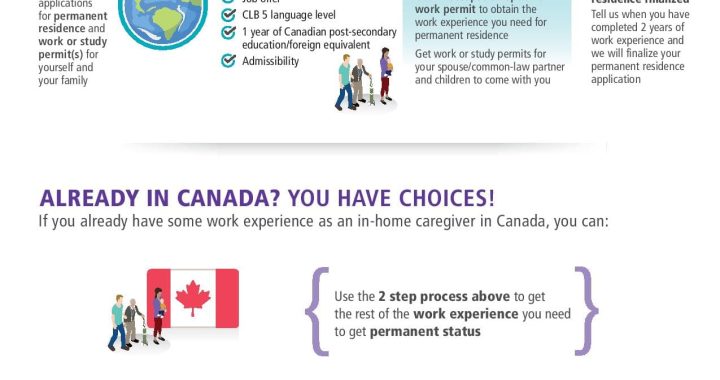ICE Deportations at Immigration Hearings: Truth, Risks & Legal Remedies

ICE Deportation at Immigration Hearing- Truth, Risk & Legal Remedies
There have been documented instances where immigrants were detained by ICE during their appointments at immigration offices. For example, internal emails revealed that officials coordinated arrests of undocumented immigrants married to U.S. citizens when they appeared for interviews related to their legal status. These communications indicated that ICE and U.S. Citizenship and Immigration Services (USCIS) scheduled interviews to facilitate arrests, with ICE agents present during these appointments.
Details of These Actions directing at deporting immigrants even in cases where their cases are pending
In some cases, immigrants who were granted prosecutorial discretion—a decision by ICE to defer action on their immigration status—were later detained during routine check-ins or appointments. If a final order of removal had already been issued, ICE could execute the deportation immediately upon terminating prosecutorial discretion. This underscores the precarious nature of such discretionary relief and highlights the importance of understanding one’s legal standing.
Immigrants in the U.S. interior, especially those attending scheduled hearings, are generally afforded the opportunity to present their cases before an immigration judge.
Remedies Available to Immigrants Facing Deportation
Immigrants subject to deportation have several legal avenues to explore:
Cancellation of Removal:
This relief is available to certain immigrants who can demonstrate continuous physical presence in the U.S. for a specified period, good moral character, and that their removal would result in exceptional hardship to a U.S. citizen or lawful permanent resident family member.
Asylum and Withholding of Removal:
Individuals fearing persecution in their home country due to race, religion, nationality, political opinion, or membership in a particular social group may apply for asylum. This protection allows them to remain in the U.S. and potentially obtain lawful status.
Adjustment of Status with Waivers:
Some immigrants may be eligible to adjust their status to that of a lawful permanent resident, especially if they have qualifying family relationships or employment opportunities. In certain cases, waivers for specific grounds of inadmissibility, such as the 212(h) waiver for certain criminal convictions, can facilitate this adjustment.
Organize Documentation:
Keeping all essential documents organized—such as identity papers, immigration forms, and proof of community ties—can support a strong defense if faced with detention or deportation proceedings.
Temporary Protected Status (TPS):
Immigrants from countries experiencing armed conflict, environmental disasters, or other extraordinary conditions may be eligible for TPS, allowing them to live and work in the U.S. temporarily.
Voluntary Departure:
In some situations, individuals may request voluntary departure, allowing them to leave the U.S. at their own expense within a specified timeframe, thereby avoiding the legal consequences associated with a formal deportation order.
Recommended Actions for Immigrants
Seek Legal Counsel:
Engage with a qualified immigration attorney to assess your case and explore available legal remedies. Legal representation is crucial in navigating the complexities of immigration law and can significantly impact the outcome of your case.
Know Your Rights:
Familiarize yourself with your rights during interactions with immigration authorities. Remember, you have the right to remain silent and to refuse consent to a search of your person or property.
Prepare for Appointments:
If you have upcoming appointments with immigration authorities, consult with your attorney to understand the potential risks and develop a plan. In some cases, having legal representation present during these appointments can provide additional protection.
Stay Informed:
Keep abreast of changes in immigration policies and procedures, as these can directly impact your case and available remedies.
Other Relevant Aspects and Remedies
Beyond legal options, consider these aspects:
Expedited Removal Risks:
This process allows swift deportation without a hearing for certain cases (e.g., recent border arrivals or fraud). If you’ve been in the U.S. longer than two weeks and are not near the border, you’re typically entitled to a hearing—know this distinction.
Community Support:
Nonprofits and advocacy groups (e.g., American Immigration Council, RAICES) offer free or low-cost legal aid and resources.
Policy Changes:
Immigration enforcement priorities shift with administrations. Stay updated on executive orders or DHS memos that could affect your case.
Finally !!
The detention and deportation of immigrants during their appearances at immigration offices underscore the critical importance of understanding one’s legal rights and options.
ICE agents summarily deporting immigrants at hearings underscores the real fears within immigrant communities. Understanding ICE’s actual processes, your legal remedies, and your rights is empowering. Whether it’s applying for asylum, seeking cancellation of removal, or preparing a safety plan, taking action now can protect your future.

 New Education Assessment Requirement for Caregivers: A Major Setback for Immigration to Canada
New Education Assessment Requirement for Caregivers: A Major Setback for Immigration to Canada  What happens if the marriage ends before the conditional green card is granted to spouse
What happens if the marriage ends before the conditional green card is granted to spouse  Marriage Visa to the USA: Your Ultimate Guide to Love, Law, and a Green Card!
Marriage Visa to the USA: Your Ultimate Guide to Love, Law, and a Green Card!  Employment Scams Targeting Immigrants in Canada: How to Detect, Avoid, and Fight Back
Employment Scams Targeting Immigrants in Canada: How to Detect, Avoid, and Fight Back  America’s 2025 Deportation Crackdown: Should You Stay or Self-Deport?
America’s 2025 Deportation Crackdown: Should You Stay or Self-Deport?  Will You Be Deported for an Expired PR Card and having failed first test for Naturalization?
Will You Be Deported for an Expired PR Card and having failed first test for Naturalization?  ICE Deportations at Immigration Hearings: Truth, Risks & Legal Remedies
ICE Deportations at Immigration Hearings: Truth, Risks & Legal Remedies  Canada Removes Points for Prearranged Job Offers in Express Entry: What It Means for Immigration Applicants
Canada Removes Points for Prearranged Job Offers in Express Entry: What It Means for Immigration Applicants